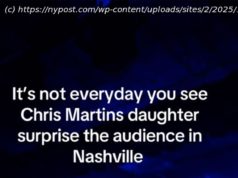The cult pop star’s first album in eight years offers a delicate, meta take on dance history—and human emotion.
The sort of anthems that made Robyn famous speed time up. “ Dancing on My Own,” “ Call Your Girlfriend,” and “ Show Me Love ” draw on bittersweet feelings, but from their first synthetic whirl of notes—as sad-happy verses open up into sad-happy choruses—they’re also a rush. Sing the tunes en masse and it’s fun like a roller coaster is fun, like a thriller movie is fun, or like a night of drinking, remembered later only in patches, is fun. You just want to do it again.
She’s done with the rush, mostly. In the eight years since her last proper album, the 39-year-old Swede endured personal loss, took up meditation, and recorded some experimental collaborative EPs. Now she’s fully reemerged with nine songs that ask the listener to sit with them in great mindfulness as she grapples with time’s passage. Honey, her eighth album, is all underplaying and evasion, winks and sighs. She’s termed her new sound “soft ecstasy,” and it’s not hard to imagine that phrase as a club drug: The world comes into focus, but the payoff is mellower than euphoria.
Read: Robyn’s primal power
Even the most recognizably Robyn-esque track, the return single and album opener “Missing U,” is fundamentally rejiggered. It, like many of her old songs, centers on an arpeggiator: equipment that renders chords like pointillists render landscapes, for a twinkling, ebbing effect. “On this record, the arpeggios are still there, but I tried to make them less even, less stiff, less on the 16th notes, and with a different groove,” she told Pitchfork, which helps explain the lurching sensation underneath the song’s story of loss. Catharsis murmurs in the lyrics and the phrasing, but relief isn’t the centerpiece. Pain is.
If that song’s verse/chorus whoosh won’t replace her old hits on karaoke playlists, nothing else on the album will. “ Honey,” the final version of which has been an object of speculation for fans ever since a demo snippet played on Girls, turns out to be a beautiful feint: The seductive, aching hook exists mainly to amp a sense of anticipation. Again, Robyn writes rhythm-first, with the nearly rapped verses evoking a hot tumble of desire as the backdrop thumps orderly, coolly. The title—the second meta sweetener this year—hints at how she’s working with a thicker, slower, and subtler version of pop sugar.
Apart from the synth-pop singles are sketch-like curiosities of songs that reference but don’t recreate the highs of dance-music history: disco, house, samba. “Because It’s in the Music” recalls Arthur Russell’s sparse sparkle and Chic’s waddling basslines as Robyn sings, in her most childlike tones, about some other song that makes her want to cry. “Baby Forgive Me” continues the half-remembered Studio 54 routine—wind chimes, flute-like sounds, far-off crowd noises—while she prostrates herself before a lover. Conceptually interesting though these tracks are, Robyn’s only describing, not creating, powerful feelings.
But that gentleness makes her rare moments of intensity more gratifying. “Send to Robin Immediately” flows directly from “Baby Forgive Me,” and when she sings that earlier song’s title in a lower register than before—and keyboard warbles and click-clacking high hats begin to encroach—it’s so chill-inducing you may reach for a sweater. She demands that the person she’s been singing to drop the coyness—“say it and mean it, baby”—and the music itself obliges in sleek, hypnotic fashion. Though almost four minutes long, the track scans as defiantly short: She’s back to bending time, yet still without overt ebullience.
The final third of the album is more in party mode—you can tell because Robyn squeals “party” repeatedly amid the teasing clatter of “Beach 2K20”—but she continues to fetishize restraint, even when cheekily serving up ’90s duckwalking realness on “Between the Lines.” But the fabulously spry new-wave closer “Ever Again” finally does erupt in colorful sounds and pulse-pounding rhythms. Meanwhile Robyn sings of never being heartbroken again, the sort of preposterous fantasy pop usually trades in. It almost lands as a joke about the easy pleasures she’s been referring to—and withholding—throughout.
For what Robyn’s doing on Honey is making an argument about emotional authenticity. Rather than go rockist and ditch her keyboards and click tracks, she uses those things for finer, subtler ends. On “Human Being,” the woman who once advertised herself as a heroic robot offers minimalist poetry about embracing one’s own flesh-and-blood nature. “There’s no resolution / No honey gold,” she says: a liberatingly realistic description of existence, one that insists life is more than simple swings between highs and lows.






